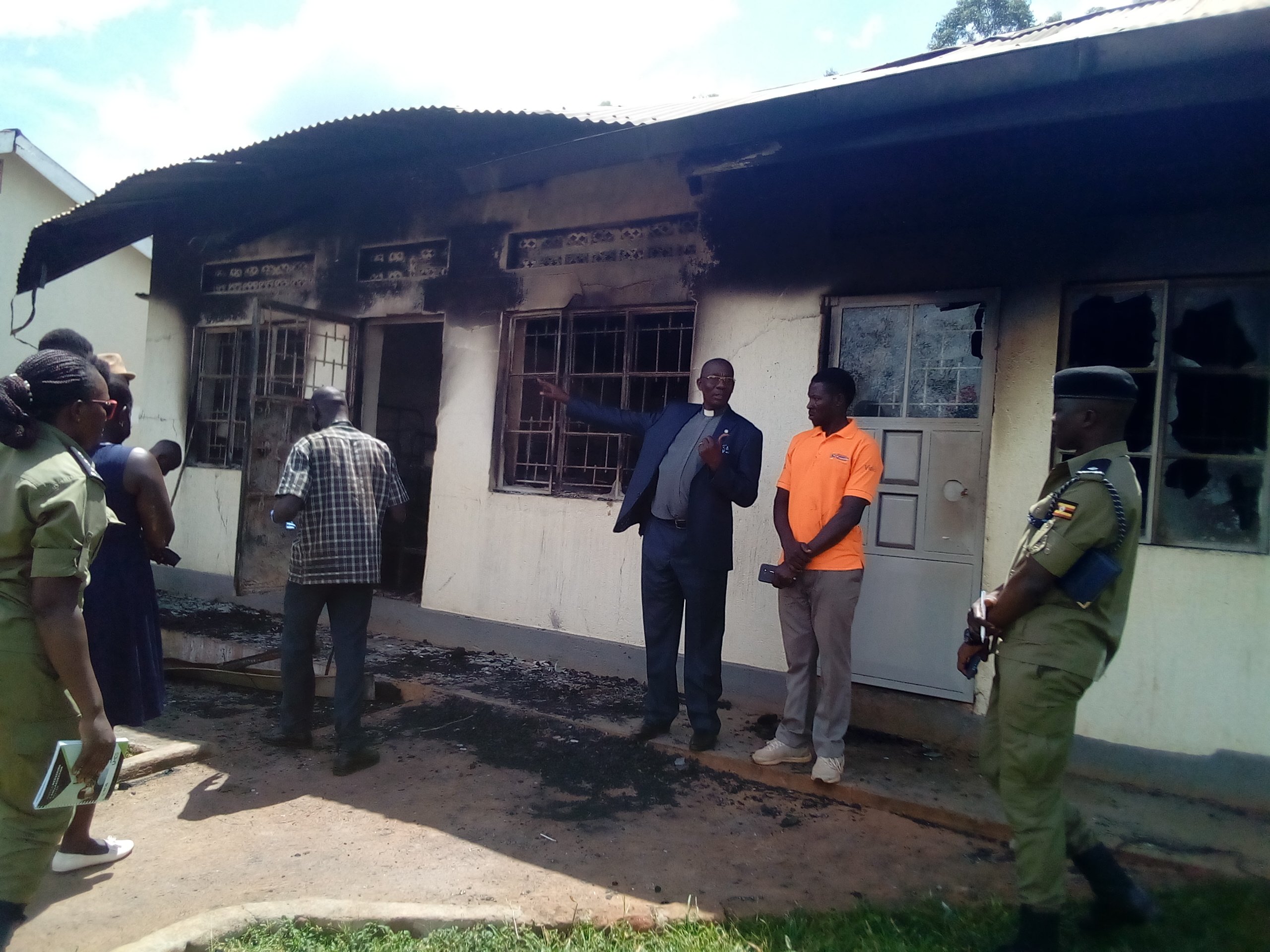Visually impaired pupils trek 3km to fetch water for school use

A teacher helps visually impaired pupils to fetch water at Kabukulwa spring well on November 5, 2022. PHOTO/ GERTRUDE MUTYABA
What you need to know:
- Given their condition, Eva Namuddu, another visually impaired pupil says they often fall in trenches on the bumpy village road and sometimes get injured.
“The teachers give us a lot of work and after lessons we start figuring out how we are going to get water for use. We ask the school management to help us fix this problem,” says Zulaikah Namagembe, a primary three visually impaired pupil at Misanvu Demonstration School Special Needs Education Unit in Bukomansimbi District laments.
Similar frustration is shared by other pupils living with disabilities at the school.
However, the school neighbors and residents say it is now a common sight to find the visually impaired pupils on the road in company of their teachers carrying jerrycans to a spring well located 3km away from the school.
“We no longer have water at the school. The tanks we had all got damaged. Sometimes we get out of class very late yet we have to get water from the next village for cooking food and washing our uniforms. It is stressing,” Lawrence Ssekidde, another visually impaired pupil said.
Given their condition, Eva Namuddu, another visually impaired pupil says they often fall in trenches on the bumpy village road and sometimes get injured.
“The road connecting to the spring well where we fetch water is in bad state. Sometimes we do not want to fetch water due to our condition but we find ourselves going there because we have no choice,” she says.
Mr Jimmy Kiranda, a teacher at the school, who is also visually impaired says, during the second term, they lost one of their pupils while going to fetch water at the spring well.
“He staggered into a swarm of wild bees that stung him which led to his death. That is why we are appealing to any Good Samaritan who can help us overcome this problem of lack of water,” Mr Kiranda says.
Mr Kiranda says sometimes they are prompted to end lessons early so that pupils can fetch water for use.
“We need over 600 litres of water to cater for both pupils and teachers for five days. So, since the school has no money to hire people to do it for us we end up involving the pupils themselves,” he adds.
Mr Robert Kalyango, another teacher at the school says the problem of lack of water has persisted over two years. He explains that the school simply needs a replacement of the old tanks which used to harvest rainwater.
“The only challenge our pupils have is lack of water for domestic use. If we can have that fixed, we will be grateful because our pupils are academically performing well despite being visually impaired,” Mr Kalyango says.
Bukomansimbi District Education Officer (DEO), Mr Patrick Zziwa says the district officials tried to lobby for financial assistance to provide clean water at the school but failed.
“We have written many letters to the ministry of water and environment but nothing has come out yet. Nw that you the media has picked interest in this issue, we hope other government agencies will intervene,” Mr Zziwa notes.
Ms Aisha Ssekindi, the state minister for water told this publication that she is aware of the challenges faced by the pupil and promised to deliver what she pledged “soon.”
"The DEO informed me about that issue during teacher's day celebrations in Bukomansimbi District and I’m yet to help our pupils so that they do not get problems while looking for water," Ms Ssekindi says.
The school has a population of 679 pupils, 57 of whom have disabilities. Of the 57 learners with disabilities, 27 are visually impaired.
In Uganda, there are about 2.8 million children of school going age with disabilities, but only 50,000 of these are in school because there are few specialized schools. There are only 24 special needs schools in the country and only 126 ordinary schools which can accommodate special needs learners.
The number of learners with disability in pre-primary schools is not known because many of these children start school late since a lot of time is spent in treatment. There are 7,682 learners with disabilities in primary schools that are getting support from the government and 115 in secondary schools.
At the tertiary institution and university level, the number of learners with disabilities is not known since many of them go into vocational activities.





